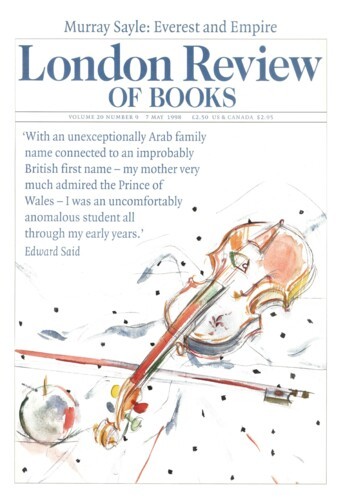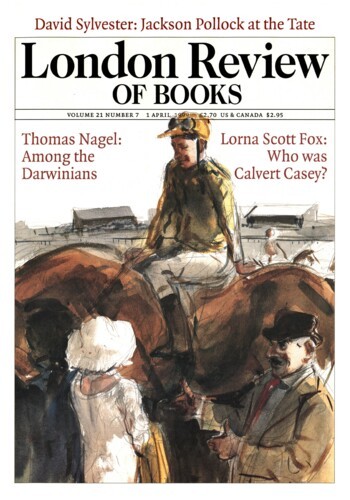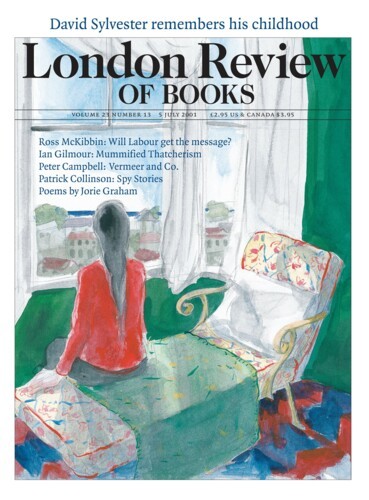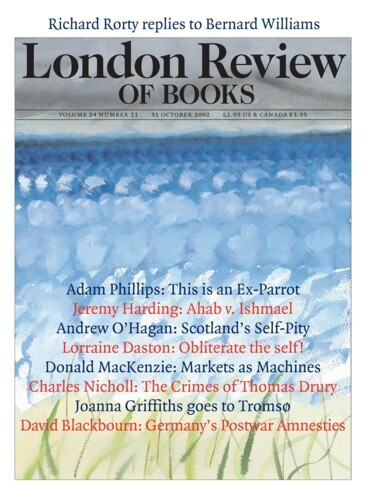Punch-up at the Poetry Reading: Dorothy Porter’s verse novel
Joanna Kavenna, 7 May 1998
Sherlock holmes tugging on his pipe in the fog-drenched London streets, Philip Marlowe swilling whiskey, waiting for the phone to release him from the solitude of his seedy office, Fitz – ‘Cracker’ – barking at imbecile bureaucracy: the detective is perennially cast as a disaffiliated flâneur, wandering the urban sprawl, collecting pay cheques from the highest bidder. He is latently self-destructive, stripped of family, a figure who slides towards pathos and even absurdity (Peter Sellers as moustache-twitching Gallic ingénu). At the beginning of the trail, the central event has already happened; the detective, divested of any power to abort or determine, can only reconstruct, seeking an origin, an ‘answer’. The genre is concerned with what happens when you skewer open the tin can which has been lurking at the back of the cupboard – Walter Benjamin’s ‘slice of pandemonium’. The detective shape-shifts but never quite belongs. The skein he unravels reinforces his isolation, as the bearer of a revelation which is too much for the recipients to stand.’‘





